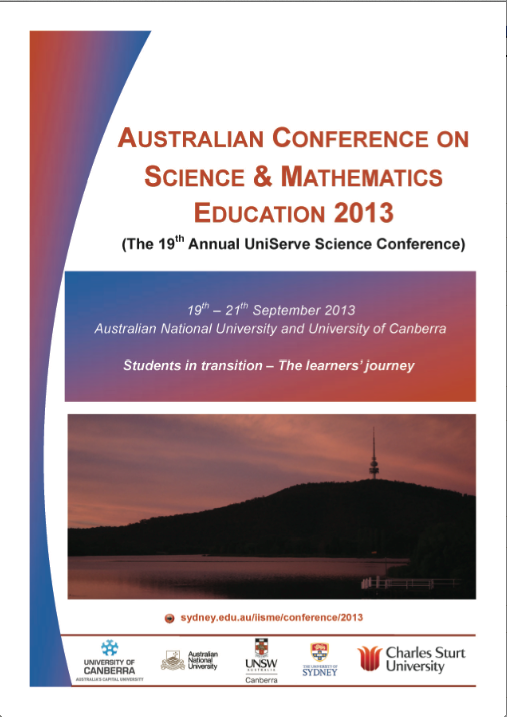Outcomes and influences: what a science degree means for Australian graduates
Abstract
Two recent publications provide contrasting yet congruent pictures of university science education in Australia. The Science Standards Statement (Jones, Yates & Kelder 2011) presented a set of threshold learning outcomes (TLOs) for bachelor level science graduates. These nationally agreed TLOs are the product of an extensive nation-wide consultation with academics, representatives of employer groups and professional societies, and students. The five TLOs encompass: understanding science; scientific knowledge; inquiry and problem-solving; communication; personal and professional responsibility. While it might be argued that for some programs at least, these TLOs are currently aspirational, the Science TLOs represent a consensus view of the minimum level of achievement expected of any science graduate, all of whom should be ready to enter the workforce as a scientifically literate member of society. In contrast, Harris (2012) sought to understand the broad influences of studying science upon the lives of Australian university graduates. Study participants were asked to reflect on the impact of their science education on their lives in general, and to offer opinions regarding priorities for university science education. ‘Thinking skills’ (e.g. critical thinking) and ‘questioning’ rated highly, and one in four described the value they placed on the ‘science knowledge’ they had gained as students. They cited ‘knowledge’, ‘ways of thinking’, and other skills including presentation skills, research skills, technical and problem-solving skills as priorities for inclusion in university science curricula. In this presentation, I will reflect on these publications as intersecting perspectives on the role and value of a university science education, and discuss how they provide some important signposts towards priorities for us in curriculum development.Downloads
Published
2013-09-23
Issue
Section
Abstracts
